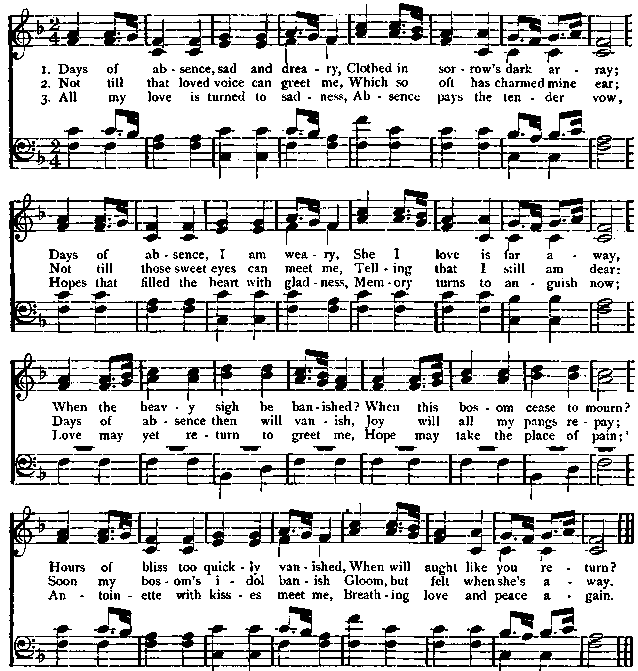Franklin Square Song Collection - online songbook
200 favorite songs and Hymns for Schools, Homes Lyrics & Sheet Music
| Share page | Visit Us On FB |
|
138 |
FRANKLIN-SQUARE SONG COLLECTION. |
|||
|
Music, of all other arts, is more especially placed at the mercy of mankind. The painting, once finished, needs nothing but the light of heaven to convey it to the organ by which it is admitted to the mind. The poem, with all its holy utterances, its pathos, its passion,has its form in "words that burn." But there is no such silent independence in music. The offspring of the musician is born dumb—it reaches no ear but his own,and that a mental one—it has to appeal to others to give it voice and being. Hence it |
comes that the composer and his composition are separated by a medium which too often reflects dishonor not only upon him, but upon the art itself. He is at the mercy of the caprices of singers and players; and the material through which it gets expression, the wood, the catgut and metal—all liable to every variation of the weather—are indispensable to its very existence. The subtle form and conditions of music are remarkable. It has also, as it were, to put on mortality afresh—it is ever being born anew, but to |
|||
|
DAYS OF ABSENCE. |
Rousseau, 1775. "Rousseau's Dream.*' |
|||
 |
||||
|
die away and leave only dead notes and dumb instruments behind. The orchestra and choristers assemble, and it is there—but gone again when they disperse. In this fugitiveness of form some have pretended to see. only the frivolity of the thing; but how deep, on th<> contrary, must be the foundations of that pleasure which has so precious a form of outward expression;—how intensely must that enjoyment be interwoven with the godlike elements of our being, in which mere outward sense has so fleeting a share! The very limitation of its natural resources is the |
greatest proof of its spiritual power. Were it not for thegrossnessof our natures.we should take it in,not by the ear only, but by every pore of our frames. And yet our intensest sympathies are awakened, and this mysterious influence is exerted merely through a slight and evanescent vibration of the air! "Whence art thou ! thou divine, mysterious thing?" is a question we must ever ask in vain, because its paths are lost in the depths of our being. We only know, and can know, of music that its science is an instinct of our nature— its subjects the emotions of our hearts.— Wysham. |
|||
|
|
||||